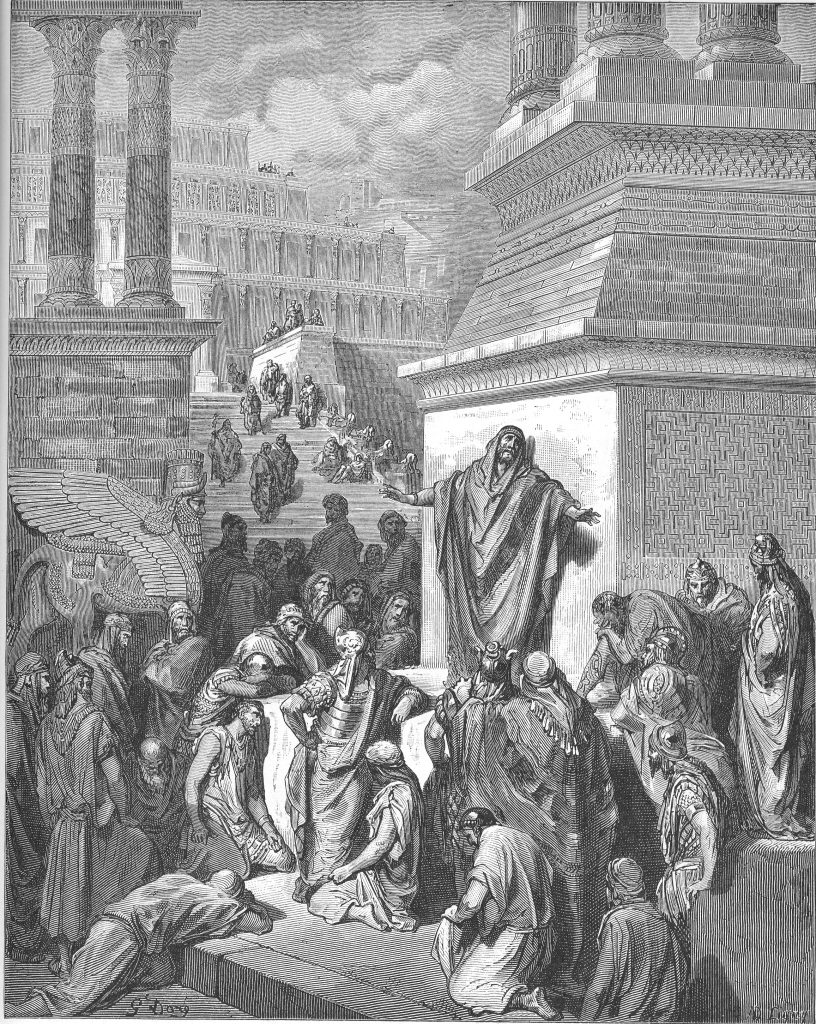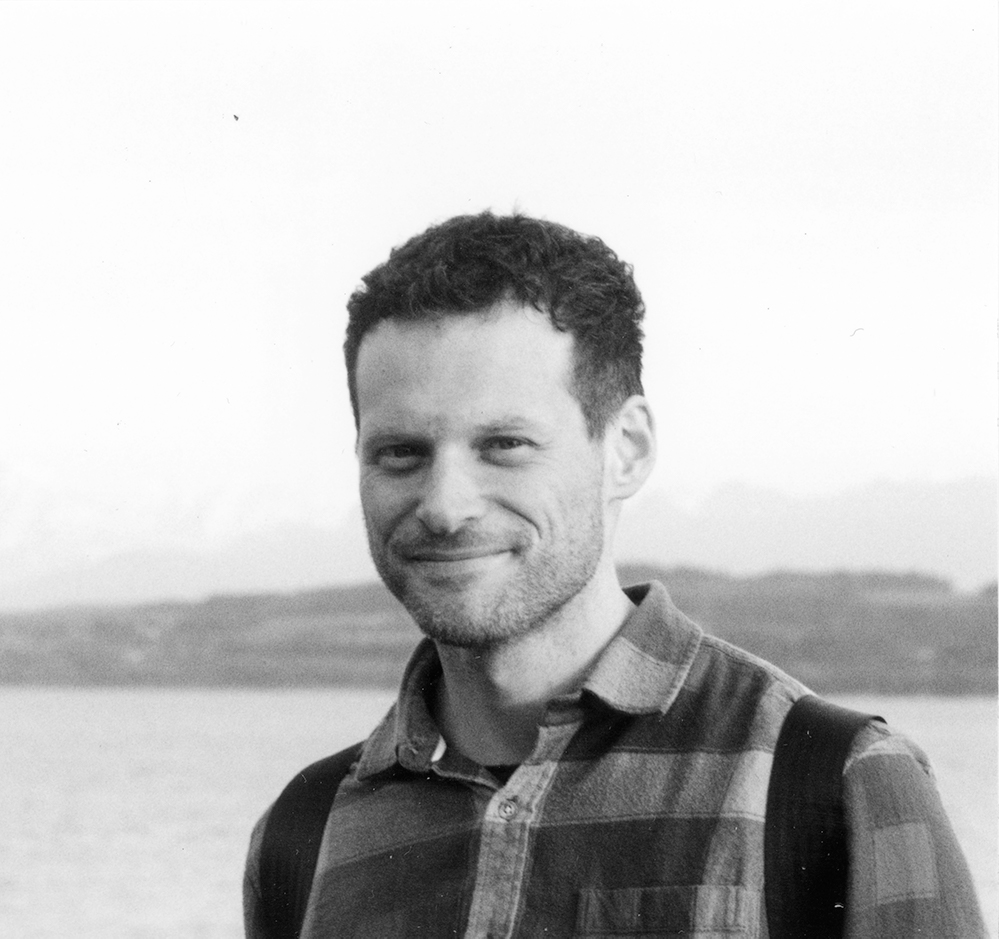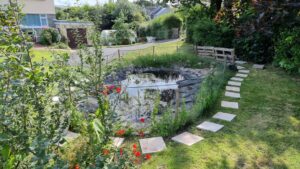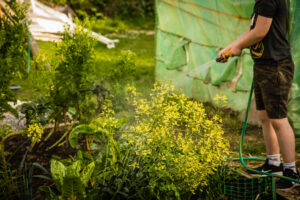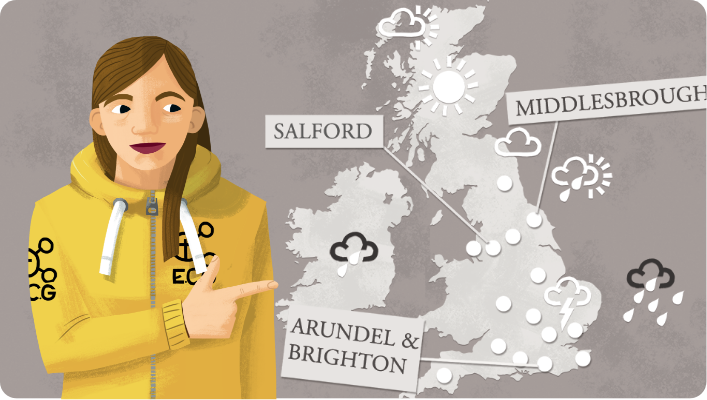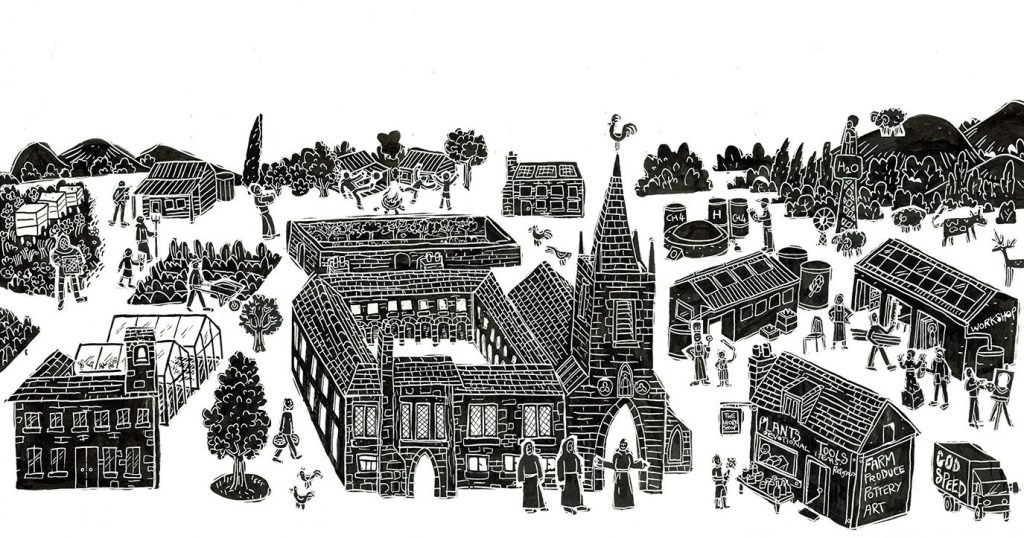
Community resilience was a topic suggested by a number of people for discussion in our Journey to 2030 network meetings. These are informal online get-togethers where we can pray and discuss our efforts in implementing Laudato Si’ in the Church.This is a summary of our discussion and reflections on the topic.
Opening reflection
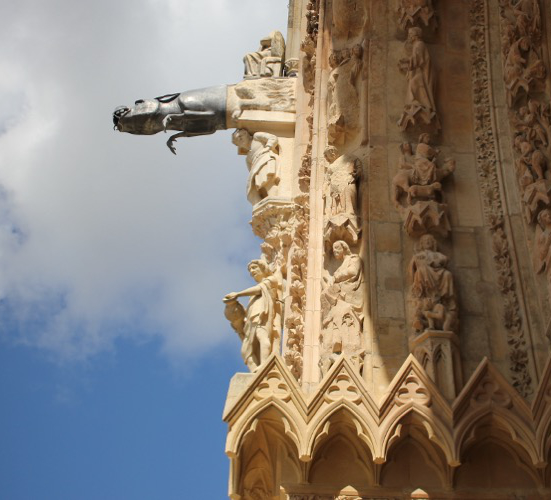
“Everyone then who hears these words of mine and does them will be like a wise man who built his house on the rock. And the rain fell, and the floods came, and the winds blew and beat on that house, but it did not fall, because it had been founded on the rock.”
“ And everyone who hears these words of mine and does not do them will be like a foolish man who built his house on the sand. And the rain fell, and the floods came, and the winds blew and beat against that house, and it fell, and great was the fall of it.”
Matthew 7: 24-27
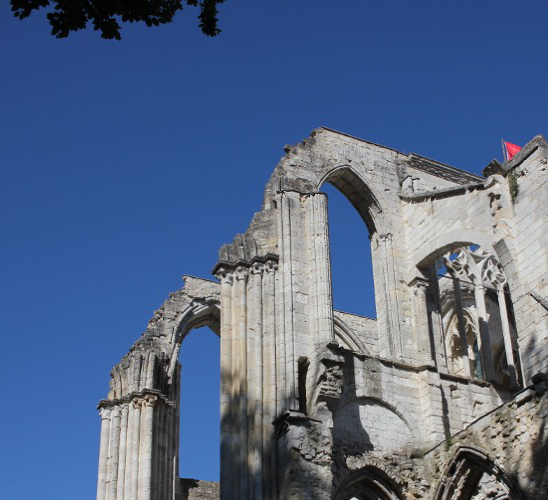
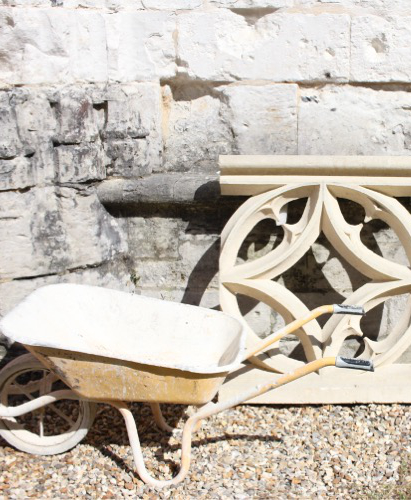
“If you take away the yoke from your midst,
the pointing of the finger, and speaking wickedness,
if you pour yourself out for the hungry
and satisfy the desire of the afflicted,
then shall your light rise in the darkness
and your gloom be as the noonday.
And the Lord will guide you continually
and satisfy your desire in scorched places
and make your bones strong;
and you shall be like a watered garden,
like a spring of water,
whose waters do not fail.
And your ancient ruins shall be rebuilt;
you shall raise up the foundations of many generations;
you shall be called the repairer of the breach,
the restorer of streets to dwell in.”
Isaiah 58: 9b-12
Introduction
when we talk about resilient people, communities or ecosystems, do we actually mean robustness?
- A disaster is when coping capacity is overwhelmed.
- Resilience is the ability to bounce back after a disaster.
- Robustness is the ability to withstand or overcome adverse conditions or rigorous testing
What kinds of disasters do we face? What do we mean by acute and chronic disasters?
Acute disasters
- The event occurs rapidly
- The effects are felt immediately
- The consequences can be long-lasting and widespread.
Chronic disasters
- These events can be less apparent, leading to a delayed or insufficient response.
- The disaster can build slowly and be difficult to spot.
- The effects are long lasting.
To draw a biblical analogy, could we say that the great flood was a chronic or acute disaster? Could the acute disaster been prevented by treating the chronic? For Noah and his tribe, could we say that preparing for the acute was possible only because they had the chronic under control?
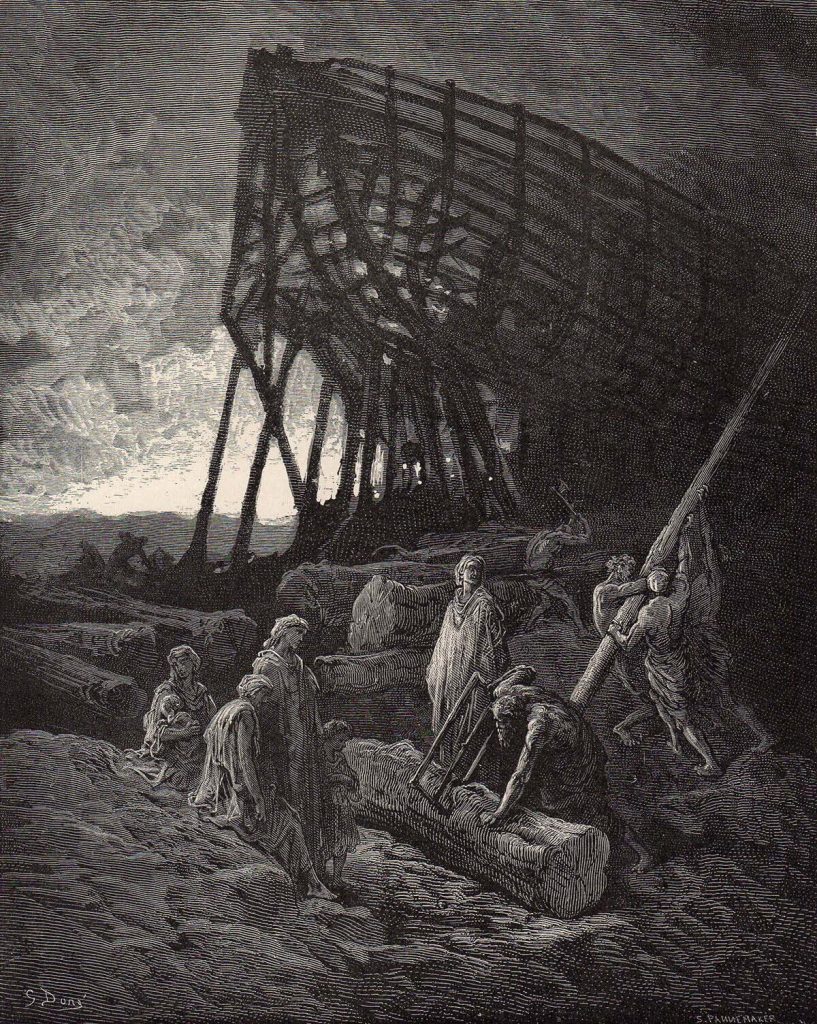
Discussion
We spent a while discussing what disasters we were able to identify in parishes that would lead to a lessened robustness. Some varied suggestions were:
- A shortage of Priests, with Priests being brought in from areas that already need Priests themselves.
- Disconnect of people/breakdown of relationships and lack of participation by vast numbers of people.
- Lack of awareness of climate situation, as with the general population.
- Trade problems due to climate change and some vital supplies like medications are difficult to get hold of affecting parishioners.
- Biodiversity loss.
- People don’t wake up to climate problems unless they are directly affected.
It was obviously difficult to identify whether many of these issues were chronic, acute or a combination, or whether they were to do with an environmental (in the broad sense) or societal cause. Chronic disasters were seen to build until they became acute, often it is only then that we take notice (It was too late for those outside the ark when the rains started to fall).
As the acute and chronic, social and ecological are identified as connected, it led to the main question of discussion;
Does concentrating on readiness for acute disasters lead to us dealing with the chronic at the same time? Or not?
For example; If we started to plan for flood defences, would that raise awareness in the community to be more active around climate change? Some responses:
- We need to deal with both.
- This too could cause division. Some solutions help the long-term, some go against it. An example: Industrialisation made rivers straighter, when they wanted to meander. If we return the river to its natural state, who buys into it? Is it seen as an inconvenience or a financial cost?
- Maybe concentrating on the acute deflects people from looking at the chronic problems. It gives them a false sense of security. It could be creating problems in other areas.
- People like to see quick fixes, which are not often the right fixes.
We discussed this in relation to global politics, and in particular the Trump administration. (If we concentrate on the acute (certainty of climate disaster), does this mean the chronic has already won the battle (we don’t have to change ourselves))?
- If we concentrate on the acute, Is there also a shifting attention away from other nations to looking after our own nation first? Are we more concerned with our own nation than we are for others?
- Integral Ecology is an essential lens, which looks at past and future, culture, ecology, society, within a moral vision, if you let any of the balls drop you are in trouble – we need to see everything as being interconnected. While Trump may be looking long term for America, he fails to see our inter-dependence.
- What happens the other side of the world is all connected. Aid should turn off the tap of dependence on fossil fuels and other interests – we are in a global society as far as the environment is concerned.
- Similarly the need to encourage fairness in trade and supply routes.
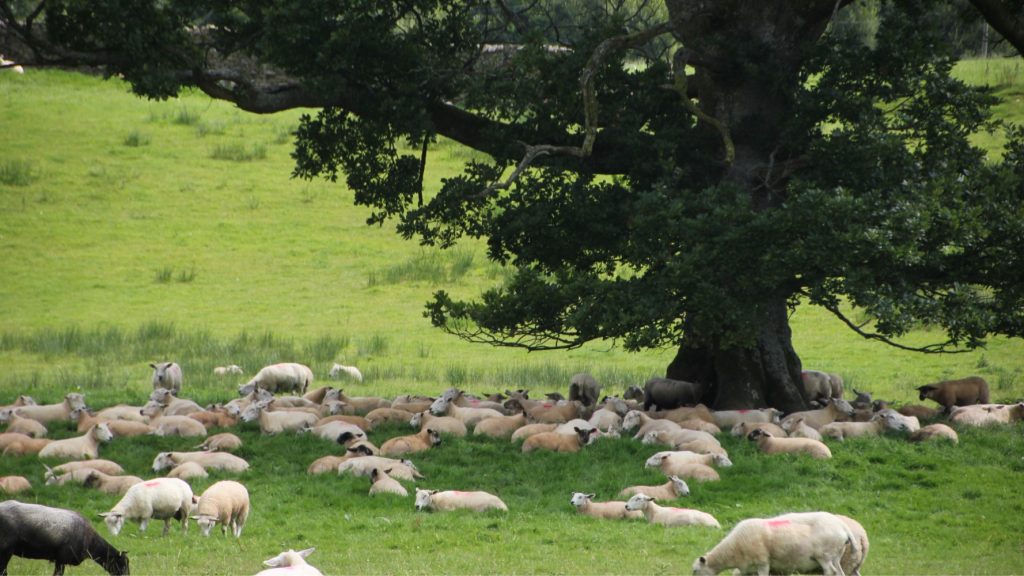
"One thing we can do is take time to get to know other members of our parish at a deeper level, to build communion here and now and rail against the individualist/'shutting oneself off' mindset that's so destructive."
Claire
What can our parishes do immediately?
With disaster preparedness in many senses, churches and individuals need to make a start and be much more prominent.
- Councils – We should be lobbying local councils and asking questions of the residents.
- We spend a lot of time/money focussing on things that are not constructive. The need to be decisive on what use of time is fruitful and what impedes the right kind of action.
- We all need to look at the cause, and the actions we are taking, and change our lifestyles accordingly.
- One thing we can do is take time to get to know other members of our parish at a deeper level, to build communion here and now and rail against the individualist/’shutting oneself off’ mindset that’s so destructive.
- We know we will have cold winters and higher energy bills, and hotter summers, with no way for an aging population to cool down. Do our parishes have sufficient showers, toilets and cooking facilities…do we have the facilities that will allow us to be welcoming? How does this allow us to build community anyway?
- Maybe take time to know people in their parishes rather than shutting ourselves off.
- We need to be ready for all circumstances – be prepared.
- Often it is the same people in the parishes doing everything, and the presumption is that these people will continue to do it. We need to improve parish dynamics.
- Move from a volunteer mentality to a mentality of belonging.
A key point raised was that it is easy to build a community that is strong but enclosed. And hard to build one that is outward and welcoming. The church is counter-cultural – it is both strong in identity, but open and welcoming. We need to build communities in the Christian sense of strong, that are welcoming and prepared for the stranger.
How can this preparedness and being vigilant in watching for signs of chronic disaster be framed as mission in the church? Maybe people need to see what it is in action. St. Patrick’s Soho and Our Lady of Fatima White City are great at fostering community with lots going on in the church. Some churches are doing amazing work for people in need. This highlights the need for case studies of people recognising disaster in all its forms and responding.
SUMMARY
It appears that all solutions from our discussion are not technical but relational. Either in building relationship to a place (e.g. building flood defences by restoring natural waterways) and relationships to our communities and councils, so that we notice the chronic before it becomes an acute problem.
"If it be now, 'tis not to come: if it be not to come, it will be now: if it be not now, yet it will come: the readiness is all."
Hamlet, William Shakespeare
Further reflection
The day after our discussion the reading and Gospel of the day resounded with our conversation.
“Jonah began his journey through the city,
and had gone but a single day’s walk announcing,
“”Forty days more and Nineveh shall be destroyed,””
when the people of Nineveh believed God;
they proclaimed a fast”
Jonah 3: 4-5
“When God saw by their actions how they turned from their evil way,
he repented of the evil that he had threatened to do to them;
he did not carry it out.”
Jonah 3: 10
“This generation is an evil generation;
it seeks a sign, but no sign will be given it,
except the sign of Jonah.”
Luke 11:29
